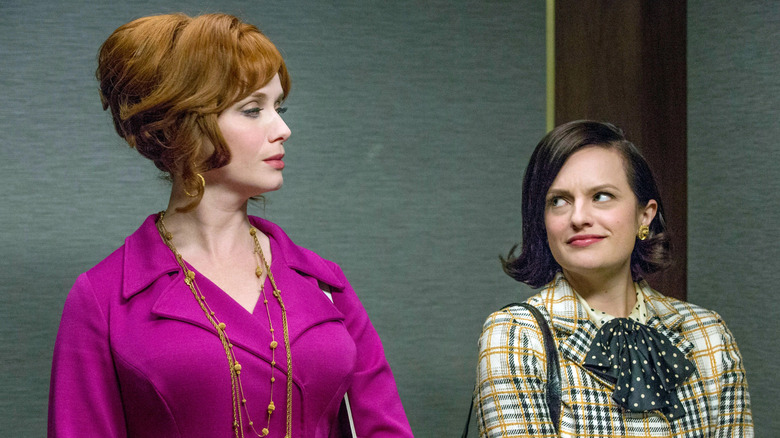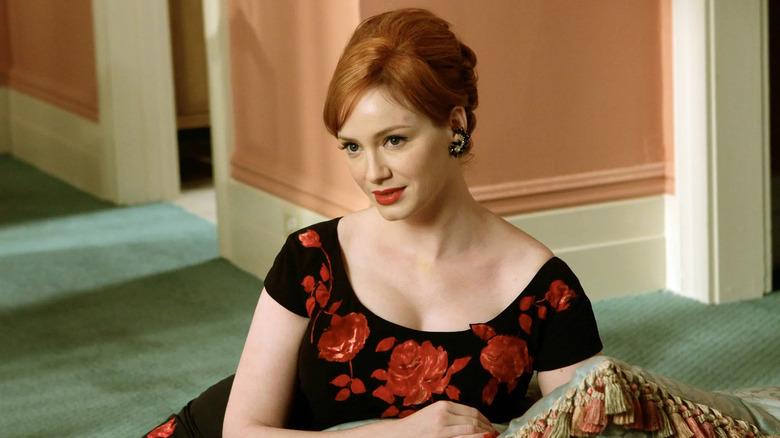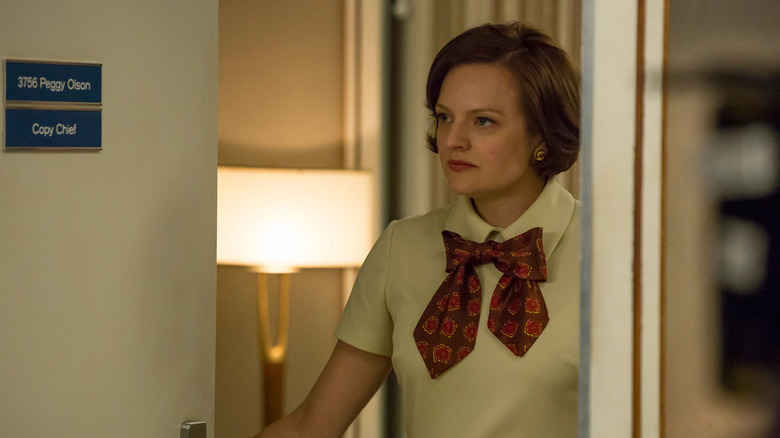Mad Men's Women Are What Matthew Weiner Thinks He Got The Most Right
"Mad Men" was not only a pristinely crafted slow-burn character study; it was also one of the most meticulously researched and finely detailed period pieces on television.
Everything was accurate to the 1960s setting, from the outfits and haircuts to the ads and music. Show creator Matt Weiner was even particular about who he cast as extras. The show did an excellent job engrossing the viewer in the time period while not taking anything away from the complex characters.
Of course, accurately portraying the '60s also meant you had to deal with sensitive topics like the prominent racism and sexism of the time. While the show's lack of significant Black characters can certainly be criticized, its portrayal of women in the workplace is far stronger, and according to Weiner, the aspect of the show he's most proud of.
According to an interview with the Irish Independent from when the show first aired, Weiner got very strong feedback on his show from women who actually worked in advertising during the '60s. "I spoke to a number of ad executives from that era about the show and 70 percent of them said I'd got it dead right," said the former "Sopranos" producer. "But 100 percent of the women said it reflected their experiences exactly."
The cost of success
There are two female characters whom the show follows through their workplace journeys over the course of its entire seven season run. There's Elisabeth Moss' Peggy, who begins the show as a naive young secretary and works her way up to being a chief copywriter, as well as Christina Hendricks' Joan, who begins as the office manager and eventually becomes a partner at the firm.
While these two characters do manage to become successful in their careers, they incur many costs along the way. Peggy faces sexism throughout her journey, whether being preyed on by male executives as a secretary or not having her work taken seriously as a copywriter. Even through the end of the series, it's clear that certain men are just never going to be able to respect her as a colleague.
As for Joan, she has an affair with and eventually bears the child of one of the firm's partners, and she's only eventually able to reach partner status by sleeping with a client. Weiner discussed this in a 2017 interview with The Daily Beast, saying, "The fact that she's being compromised, or expressing ambition, or all of those things, on some level ... to me there's a horrible reality in this entire situation is that it ends up being a career-changing moment for her."
The idea that a woman who sought power and success in business back then would have to do unsavory things is a dark one, but one that likely holds truth; unfortunately, it wasn't easy to reach the top through hard work and diligence.
A rigged game
"Mad Men" wasn't afraid to have what could be, at times, a straight-up bleak worldview. Any personal victory a character would gain often came with a cost. Or maybe they'd achieve what seemed like a victory and then realize that it didn't satisfy them.
This seemed most prominent in the journeys of the show's women. Just because Peggy became copy chief doesn't mean she doesn't have to deal with sexism for the rest of her career. Joan became a partner and secured her son's future, but she had to do something she never thought she'd be willing to do. The odds were so stacked against women in the '60s that it never seemed like they could get a clean win.
We should all be glad that "Mad Men" made it past its first season, because the show's long-term storytelling was top notch in every aspect. In terms of the way it showed its female character's growth and rise through the ranks of the advertising business, the show was unapologetically accurate.


